There is an all-out confrontation between the ironic and the literal mind: between every kind of commissar and inquisitor and bureaucrat and those who know that, whatever the role of social and political forces, ideas and books have to be formulated and written by individuals.
This book covers the power of the wealthy to silence critics, the conflict between religion and freedom of thought, and the determination of dictators to persecute dissenters. Let me begin with a problem older than them all: how can a woman discover if her man is cheating on her?
If she were married to a rich Englishman in the early twenty-first century, her husband could use the full force of the law to keep her in ignorance. After Parliament gave judges the power to develop a right to privacy in 2000, the judiciary rejected Englands tradition of open justice with a breathtaking disdain for the past. The judges did not allow a free press to report what it knew, and punish editors only if they unjustifiably infringed the rights of others. Instead, they engaged in pre-publication censorship, the most suffocating form there is, and told newspapers in advance that they could never report forbidden facts. Under the terms of their injunctions, no one was able to say why a banker or celebrity had taken legal action. By the judiciarys logic, the ban on the reporting of the proceedings of the courts made sense. The secrets of the outwardly wholesome star who is sleeping with the wife of his best friend, or the outwardly respectable tycoon who hires prostitutes by the half-dozen to beat him in a London basement, would not be secret if the media could publish a description of his reasons for keeping his private life private.
Then the judges screwed the lid down tighter. They turned ordinary injunctions into super-injunctions, which not only barred reporters from revealing why claimants had gone to court, but barred them from revealing that claimants had gone to court at all. The censors censored the fact of censorship. The existence of their super-injunctions was itself a secret.
The readiness of the judiciary to use the law of libel to stifle public debates in England and around the world had already provoked protests from the US Congress, the United Nations and journalists investigating oligarchs from New York to Kiev. True to their censorious form, the judges went on to shut down arguments about private life. They rejected the example set by American lawyers, who had created the concept of the right to be let alone for ordinary citizens, but given public figures fewer protections. Instead, they invented rights to privacy that hardly anyone who went to work for a living thought justifiable.
The corporate-responsibility guidelines of modern corporations and state bureaucracies did not regard affairs at work as private matters. If a powerful man began a relationship with a subordinate, trade unions, supervisory boards and employment tribunals wanted to check that he had not pressured the woman into pleasuring him by hinting that her career would suffer if she did not. If there had been no sexual harassment, they wanted to know whether she had entered the affair in the expectation that pay rises and promotions would follow. The US Congress almost impeached Bill Clinton for having sex with an intern in the White House and lying about it under oath. In many companies, a philandering manager risked instant dismissal.
Everyone agreed that there was a public interest in the links between sex and the abuse of power and position everyone, that is, except the judges. They gave Fred Goodwin, one of the most disastrous figures in the history of British finance, an injunction to suppress reporting of an extra-marital affair he enjoyed with a subordinate while he was leading his Royal Bank of Scotland to ruin and half-bankrupting Britain as he did it. Even though Goodwin was in charge of a publicly traded company, the courts said the relationship was private. If the media wanted the gagging order lifted, they had to prove in advance that the affair was a specific abuse of power. The most hard-bitten hacks would have found clearing the hurdle the law had raised a formidable task. The judges had made it a contempt of court to identify the mysterious woman, so how could they ask questions about her?
Discovering what the judges censored in secret hearings was a difficult enterprise. The best information came from a tabloid journalist who risked contempt of court proceedings by piecing together snippets of information from newspapers legal departments. Writing on the Web under the protection of a pseudonym, she said that a few of the super-injunctions she had been able to study were unobjectionable. Judges had intervened to protect children or private citizens who just wanted the press to leave them in peace. Most of the time, however, they came to the aid of people in the public eye: a first XI and full substitute bench of footballers, stars of stage and screen, singers and corporate executives. The majority of super-injunctions covered extra-marital affairs. They aimed to silence ex-mistresses, former wives or cuckolded husbands. In other instances, employers imposed them on former employees to keep accounts of professional incompetence or affairs in the workplace hidden. Some are absurd: one involves allegations that someone is losing his hair, while another is about a man who died after he got an injunction but it still cant be reported. Another is about failures by a doctor who was criticised by a judge in a social services case, but cannot be identified.
When Ryan Giggss lawyers tried to stop a beauty queen telling of her nights of passion with one of the most talented footballers in the English Premier League, they thought they had a straightforward case. She was preparing to sell her story, they said. The English legal system must silence her to protect Giggss public image as a loyal husband and wholesome sporting role model. The judge told her to shut up, and warned the media that they must censor themselves or face the consequences. The sole option left to the frustrated tabloids was to run articles complaining that the courts had stopped them exposing an unnamed footballing love rat.
No judge on earth can stop journalists gossiping, and many who worked in the media knew that the mysterious footballer was Ryan Giggs. Thirty years earlier, the gossip would not have spread far beyond the offices and pubs of Fleet Street. If editors had thought for a moment about sharing what they knew with their readers, the knowledge that the courts might have imprisoned them and hit their proprietors with substantial fines for breaking an injunction would have stopped them. This was the way it had always been.
Few in authority realised that their manageable world, where gatekeepers controlled the news and judges and politicians held gatekeepers to account, had gone. Word of Giggss injunction reached Twitter. Account holders, some hiding behind pseudonyms, linked him to the beauty queen. His lawyers did what their predecessors would have done. Tweeters were publishing in defiance of a court order, so the lawyers job was to identify and punish them. They announced that they would take legal action against Twitter, and compel it to reveal the identities of users who had placed themselves in contempt of court. Stuck in the last century, they did not understand how ridiculous their threats sounded.
Suing the Internet because they did not like what people were typing on Twitter? They might as well have sued the sky because they did not like the weather. The Internet is just there, like a force of nature. If one person, living in a courts jurisdiction, breaks an injunction, a judge can punish him. But how can a judge punish a thousand, ten thousand, a hundred thousand?

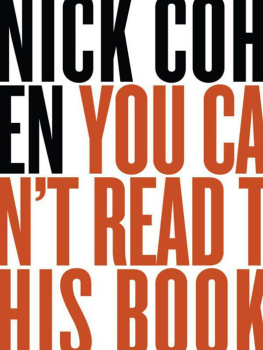
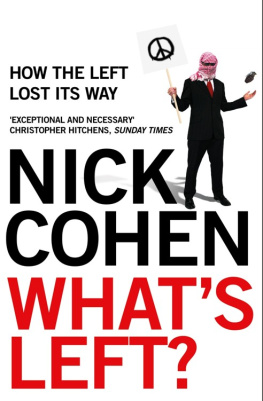
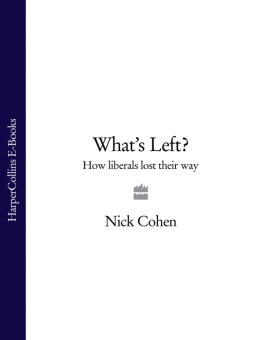
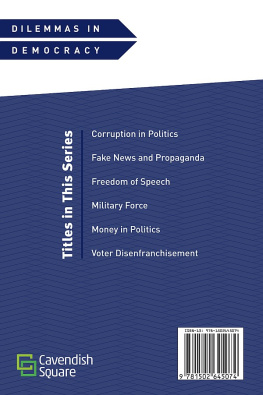

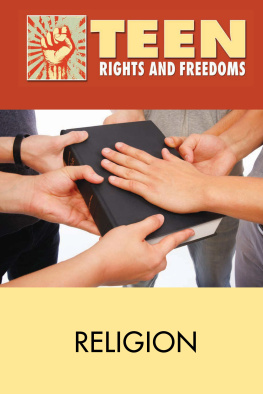
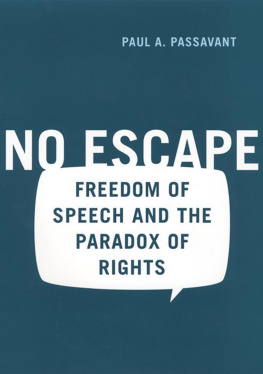
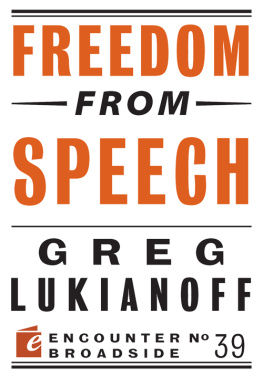
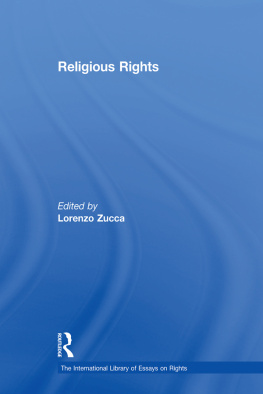
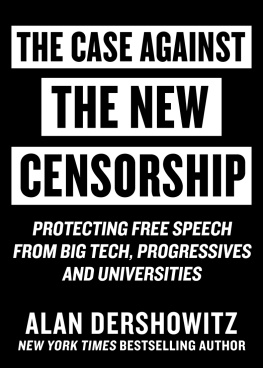
![Blackford - Freedom of religion [and] the secular state](/uploads/posts/book/167779/thumbs/blackford-freedom-of-religion-and-the-secular.jpg)
